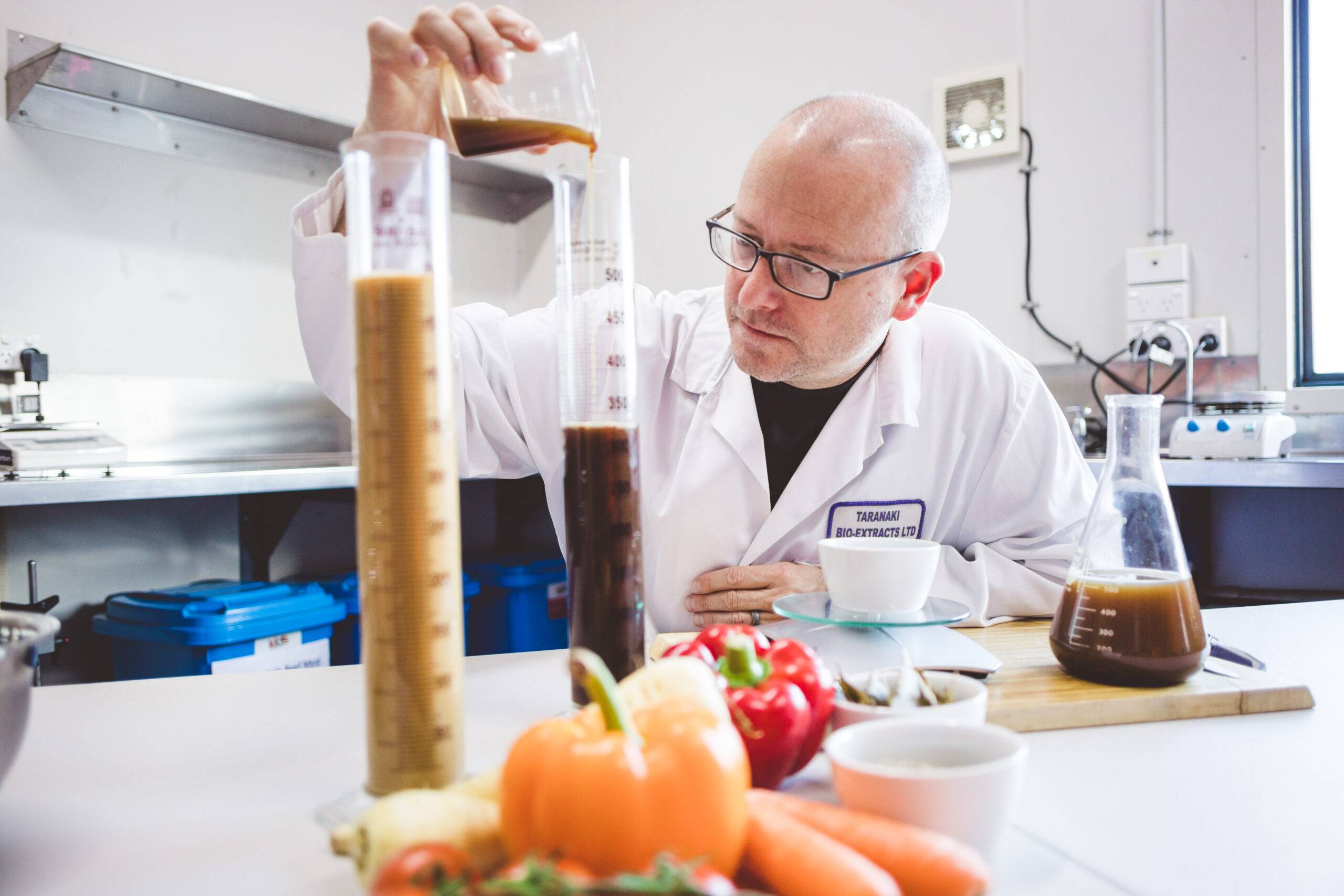An official assurance, or export certificate, from MPI confirms that New Zealand products meet the requirements set by the New Zealand Government, as well as any other trade conditions for exporting to markets overseas.
“For us all the rules associated with meat/ beef bone products regulate what raw materials we can use, what our product can be called, and direct labelling and definitions for product names. There’s an OMAR document for each market; country or region. The USA is among the most highly regulated markets when it comes to OMARs – If you are listed with the USA you are often able to send to countries with lesser regulations,” says Dr Mike North, Plant Manager, Taranaki Bio Extracts.
HURDLES TO OVERCOME IN THE EXPORTING PROCESS
Despite the challenges involved, Taranaki Bio Extracts have a wealth of experience successfully exporting for many years to both Asian and Western markets.
Complying with packaging and labelling rules
All export goods must meet specified standards with the packaging and labelling requirements of the market they’re being sold in.
Food products must also meet the labelling regulations in the Australia New Zealand Food Standards Code before being exported, unless the product is exempt.
When it comes to product names for labelling, a product can be called different things – It’s important to understand what it’s called in the market you’re exporting to. Does the OMAR allow the name? There are often composition requirements for a name too. If a country is not English-speaking, MPI (Ministry of Primary Industries) requires English, and the language for that market, to feature on the label. The language has to be approved by an official translation service – often due to differences in the native language, and the translation, there is liaison required between the customer and the official translator. Sometimes a customer may not want English on the label, but because it’s an MPI requirement it’s non-negotiable.
Alongside labels, there are label claims; with certain markets you need to ‘prove’ a claim or you may not be able to use a term – for example, ‘natural’. Because MPI are representing these global markets they are regularly checking that New Zealand companies are meeting requirements. It can be worth working with a consultant, or your importer, in your overseas market to confirm and apply their packaging and labelling requirements.
Frozen Samples and Shipping
Manufacturing and exporting food ingredients means samples play a core part in the sales process for Taranaki Bio Extracts with many of their prospective customers. Frozen samples can cost thousands of dollars to export.
“Most freight is in shipping containers. Mainfreight may be sending a refrigerated container, and this can be used. Often we have to purchase a whole container for a small volume. If the sales opportunity warrants it, we’ve flown samples in frozen packs or air-freighted on dry ice,” says Dr Mike North.
No one buys large volumes at the outset, and when it comes to shipping there’s no way to send a half a container with other products in it – someone has to pay for the full container. This adds to the cost for the customer.
Import Permit
A customer needs to be eligible to import your product, and they often don’t know if they are eligible or not.
“We often help prospective customers by directing them to contact their local authorities or Chamber of Commerce-equivalent,” says Dr Mike North.
Communication is Key . . .
The more information Taranaki Bio Extracts are supplied with at the outset of their dealings with a prospective customer, the better informed they are to successfully support them.
“There have been occasions when we receive requests from a customer at the end of our dealings – for example, a company in Canada requesting if product is eligible to go to the EU/ USA. A request like this is needed early in the process to ensure OMARs and other relevant exporting requirements are met for the specified market,” says Dr Mike North.
“Together with our customers we consider all the international legalities on compliance and overseas market access requirements (OMARs). We work hard to ensure our deliverables are achieved for you,” says Dr Mike North.
Thanks to Ministry for Primary Industries | NZ Government (mpi.govt.nz) for key information in the this article.
Ends.
